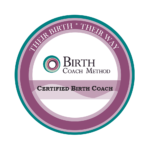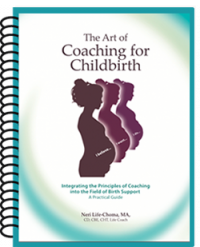
Doulas’ Professional Status: Peers, Companions, Lay Women, or Birth Support Professionals?
I wanted to quit, but I discovered coaching and got excited again about being a doula.
After a decade of practicing as a doula and childbirth educator, I was about to quit. I was burnt-out. The rising rate of medical interventions led me to doubt my ability to fulfill my role and facilitate healthy and positive birth experiences. Additionally, the growing gap between doulas’ approach to childbirth and the approach held by the medical caregivers that our clients trust for their journey, triggered a lot of tension in me. These circumstances, in addition to the given hardship of the doula practice, made me reconsider my career path.
Ten years have passed since I felt under-resourced and I still enjoy practicing as a doula and training doulas. How did this happen? I discovered coaching!
In the last couple of years, I have come to learn that I am not the only one to have gone through this professional struggle. In spite of ACOG’s recognition of doulas’ benefits and some big headlines reporting the many celebrities who hire doulas for their birth, doulas experience a few major dilemmas that cause great hardship.
This uneasiness reflects in social media and doulas’ blog posts, and I can sense the confusion, frustration, and disputes that percolate within the doula community. Being passionate about doulas and our valuable stewardship position, I’d like to share my personal path that helped me resolve the three major dilemmas doulas face:
- Doulas’ professional status
- Doula’s scope of practice
- Doulas’ economic situation
Are doulas companions, peers, or birth support professionals?
In reality, the tension between the two groups – medical caregivers and doulas, keeps growing.
This blog post is the first in three posts in which I’ll explore the dilemmas above and share the resolution that helped me reach my 20th year of practice.
I will first address the dilemma of professional recognition. In reality, doulas aren’t acknowledged by medical caregivers and the tension between the two groups – medical caregivers and doulas – keeps growing. It’s a real problem for doulas when 96% of all births in the USA are hospital-based. Doulas feel inferior in this arena because the decision-making process relies mainly on scientific and medical standards of care.
Additionally, receiving professional recognition from the majority of our potential clients is not easy at all. Expectant parents have come to associate doulas with the natural birth movement and if they reject the idea of natural or unmedicated childbirth – as most of them do – then they dismiss the idea of hiring a doula.
I believe that the professional recognition dilemma originated with confusion about the role of a doula. Are doulas peers, companions, or birth professionals?
As a doula of 20 years, I can confidently say that nothing in the role definition of doulas, as crafted by the pioneers, suggested a professional status. Klaus and Kennell’s book ‘Mothering the Mother’ led the first generation of doulas to believe that their mother-like presence, natural talent, and supportive companionship are all it takes to reduce rates of medical interventions or shorten the length of labor. So historically doulas were perceived as companions. But do we really want to be perceived as such today?
The increasing rates of inductions, cesareans, and other medical interventions made me realized that ‘companionship’ is not enough.
In reality, many of us are discouraged or even traumatized facing this painful truth: The increasing rates of inductions, cesareans, and other medical interventions mean that companionship is not enough to lead birth givers toward healthy and positive experiences. As a result, many discouraged doulas turned to evidence-based studies, trusting the evidence to convince their clients to take a stand against unnecessary inductions or cesareans or any other medical advice. My beliefs about my scope of practice and my role don’t let me join this tempting trend for two reasons:
- I feel that breaking rapport and damaging the trust that my clients have established with their caregivers is not an act of support but rather elicits anxiety.
- I don’t feel comfortable claiming that I hold ‘better evidence’ or know a ‘better practice’. In order to evaluate medical findings or compare conflicting studies, I’ll have to study a whole new set of skills. Instead, I choose to continue focusing on the quality of the birth experience and my leadership skills. This allows my clients to optimally perform throughout their journey of pregnancy and birth, with what becomes available for them physically, emotionally, and medically.
Can we practice from a peer position and gain professional recognition at the same time?
Frankly, the historic ‘companionship’ position was valuable to me. it has protected me from liability issues that are quite scary. Unlike medical caregivers, I didn’t practice with the fear of being sued. So maybe I do want to preserve the ‘peer’ position? And if so – how can I claim both a peer position and a professional status?
I discovered coaching and it reshaped my career!
Ten years ago, when this struggle almost led me to quit practicing as a doula, I enrolled in a year-long transformational coaching training with the goal of establishing a coaching practice. “I can coach powerful women who face some challenges or internal resistance in different areas of life, and lead them to accomplish their goals,” I thought to myself.
I can’t tell you how excited I was to learn that the practice of coaching actually resolved the tension between the peer position and professional status. Coaches do practice from a partnership position and they gain the professional status that keeps growing even within the health system.
Coaches are professionally skilled to lead individuals toward fulfilling their goals. They are not experts in what is right for their clients. On the contrary – they are trained to see the clients as an expert in their own lives and lead them based on their belief system, goals, motivation, and ability.
I don’t feel comfortable claiming that I hold ‘better evidence’ or know a ‘better practice’. Instead, I lead my clients to connect with their truth and convictions
And thus, instead of practicing as a ‘soldier’ against the medicalization of birth, I shifted my focus to accepting the fact that the majority of birth givers nowadays trust technology and diagnostic tools, and feel safer in hospitals. I don’t want to judge their beliefs or poke holes in their belief system. Instead of learning to understand the medical studies, I immerse myself in learning and understanding my clients’ model of the world; their beliefs about birth, pain, the medical system, technology and more.
Connecting to one’s truth gives way to change of perspective. I added more and more coaching strategies and gained my NLP practitioner certificate. I ask my clients coaching questions and lead them through coaching exercises that connect them with their inner truth, and once they find it prenatally, it is almost impossible to lead them in a direction that doesn’t align with their truth.
So how do we move forward?
Integrate coaching. Experience your clients confidently take charge, and avoid professional burnout!
I’ve lived through the physical and emotional hardship of a practicing doula for 20 years now, and it has become my goal to train many birth professionals as Birth Support Coaches. I worked hard to gain the LAMAZE accreditation for the Birth Support Coaching course in order for childbirth educators to gain their coaching certificate. I believe that educating about the flaws of maternal care or the shortcomings of medical caregivers in understanding the process of physiological childbirth has failed to increase confidence and to facilitate the ability of birth givers to take charge. There is a dramatic drop in the attendance of childbirth education classes.
I wholeheartedly believe that coaching will resolve the tension between birth support professionals and the two groups they work with – medical caregivers and expectant individuals. Coaches have already been acknowledged for their leadership skills within the medical system and outside of it.
I invite you to integrate prenatal coaching strategies now and experience your birth clients conducting themselves confidently, taking charge and navigating throughout their journey of pregnancy and birth. Become a Birth Support Coach and learn how to lead a set of prenatal sessions using coaching strategies that have been proven to help individuals accomplish their goals in a timely manner and with high levels of satisfaction. You and your clients will later utilize what you have accomplished prenatally, during your clients’ childbirth.
 BECOME A BIRTH SUPPORT COACH
BECOME A BIRTH SUPPORT COACH
If you are a birth professional (doula, prenatal yoga teacher, etc.) and wish to learn the same coaching techniques that health and wellness coaches have found to be so successful in their practices, only learn how to apply it coaching expectant couples, we invite you to enroll in our Coaching for Pregnancy and Birth Certification Course.
If you are considering a career as a doula, please check out our online doula training or our Bay Area doula training in which we also teach coaching strategies.
If you are an expectant parent looking for birth support and would like a doula certified by Birth Coach Method, let us know and we will let you know if there is one in your area.
- Overshadowing the Transformative Essence of Childbirth with Data - July 10, 2024
- Navigating the Epidural Dilemma - May 28, 2024
- Informed Decision in Birth Support: A Myth of Empowerment? - April 29, 2024


